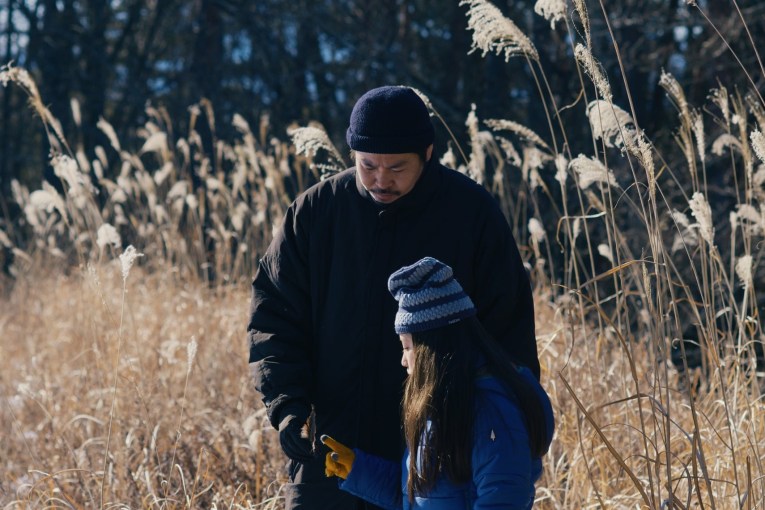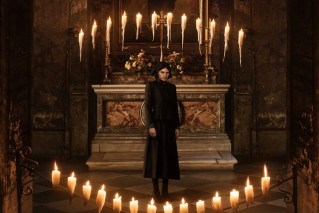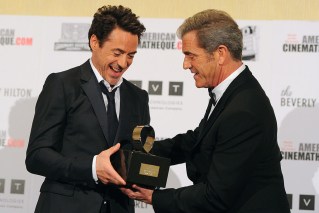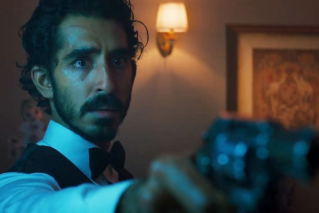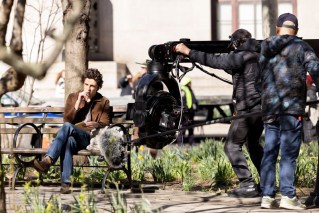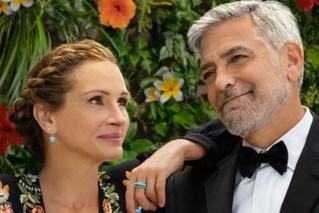‘They’d refuse to read it’: The Assistant director reveals movie fight

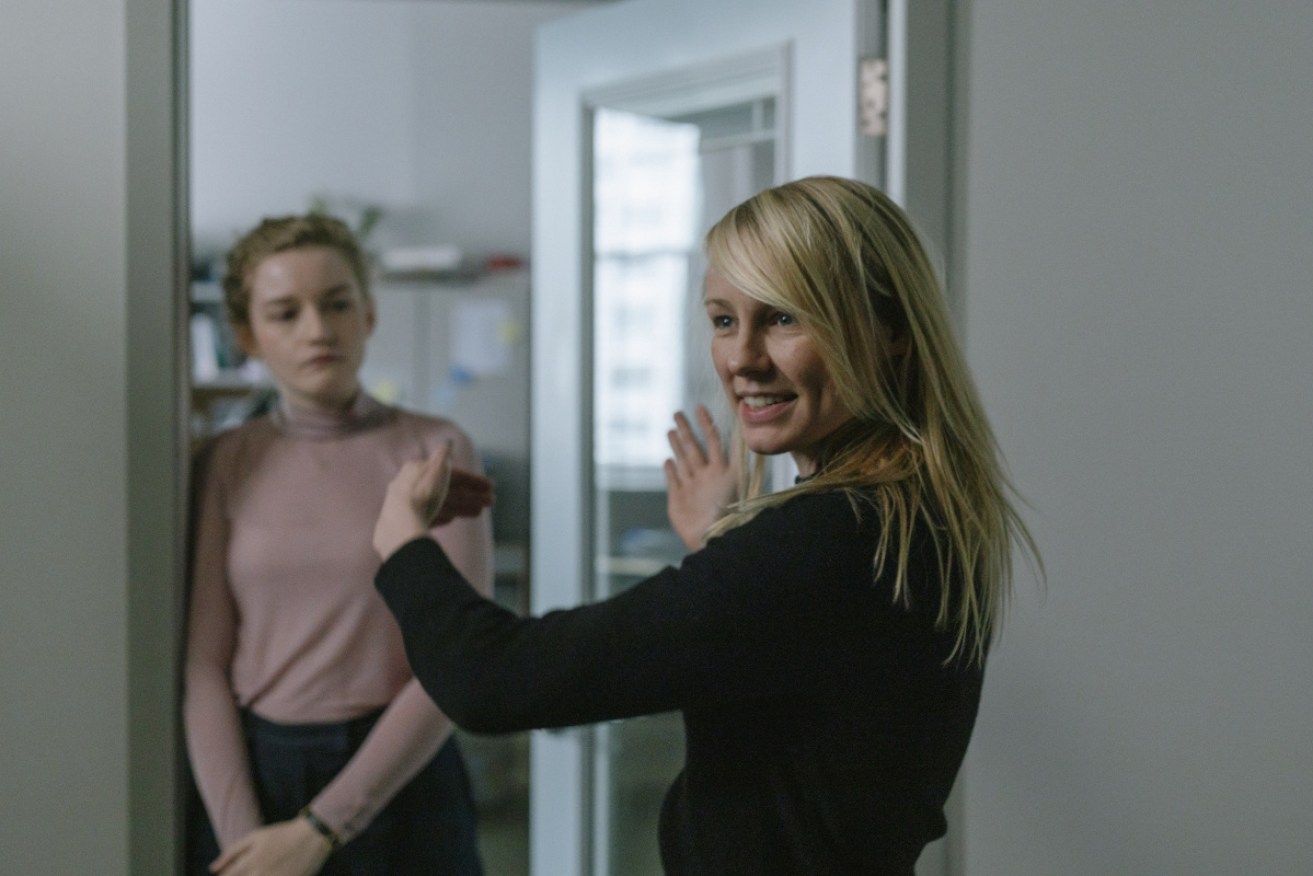
Australian director Kitty Green, right, on set for The Assistant, which she had to fight to be made. Photo: Bleecker Street
When Australian writer/director Kitty Green’s first dramatic feature The Assistant debuted at the Telluride Film Festival last year, the buzz focused on it being a response to Harvey Weinstein’s disgrace.
But the issues it unpicks are much bigger than one man.
Ozark’s Julia Garner plays Jane. She’s a relatively new personal assistant to an unseen but occasionally heard abusive boss of a New York film production company.
Shot in a whirlwind 18 days in a grimy office behind Times Square, the action takes place over one excruciating day.
The first to arrive, very early, and the last to leave, very late, she’s subjected to a litany of micro-aggressions. They snowball into something far more insidious.
“It needed to feel claustrophobic and oppressive,” Green said.
During early discussions, people she approached about making the film would often seize on the perception of women ‘enabling’ these abuses by not speaking up.
“I was trying to explain how difficult it is to be in that position, and in order to really depict that, I needed to show, task by task, how her day unfolds,” Green told The New Daily.
“The more lurid are only one out of every six or seven things that she has to do that day that are mostly very banal.”
Green delivered powerful documentaries in 2013’s Ukraine is Not a Brothel and then Casting JonBenet in 2017.
She was travelling between US college campuses later that year to talk to women about gendered bias and sexual harassment when the Weinstein story broke.
She decided to shift the focus from colleges back to the film industry, deciding that focusing on one woman’s experience would be more effective.
But many voices informed it, with Green talking to almost 100 women working in entry-level positions.
“I was hearing similar stories again and again, which were quite shocking.”
Often the gatekeeping is very subtle.
“I’m particularly interested in gendered division of labour, so when tasks that are given to women all the time are almost never given to men. Things like dealing with the wife and the children, or making coffee,” she explained.
“So many young women felt like they were given those tasks and therefore weren’t able to sit in on meetings that their male colleagues could, and that would set them back.”
These are experiences she recognises personally.
Green recalls attending the 2017 Critics’ Choice Documentary Awards in New York when Casting JonBenet was nominated for the Most Innovative category.
“I was standing next to the coffee machine and somebody asked me to make a latte. I’ve had a lot of experiences like that, where people assume I’m the assistant, as opposed to the director. I think all women have,” she said.
Given the film exposes bad behaviour that persists in the industry, was there pushback against green-lighting it?
“Oh yeah, a lot,” Green said.
“We’d often get female executives who’d want to do it and then their male colleagues, bosses, generally, would refuse to even read it. I think a lot of people feel conflicted about their own experiences.
“In order to take this project on, you’d have to be pretty confident about your company structure and your HR department.”

Harvey Weinstein, pictured with Uma Thurman, was found guilty of rape and was the subject of dozens more sexual harassment allegations from women in the film industry. Photo: Getty
There’s a jaw-dropping moment in The Assistant when Jane tries to take her concerns to an HR boss played by Succession star Matthew Macfadyen.
Given the power imbalance at play, Green argues there’s no simple conclusion to be drawn about women who don’t feel able to speak up, or who try and get shut down.
“I spoke to a lot of women who would talk about the culture of silence with these companies,” she said.
“Nobody was communicating their thoughts or fears. Nobody had enough information to really be able to explain, clearly, what was going on behind that closed door.
“They only have some of the dots. They can’t join them. That’s part of machinery that surrounds a predator.”
She hopes the film illuminates how that kind of behaviour was allowed to continue, and what we can do to make sure it doesn’t in the future.
Audiences have been very receptive.
“I’ve had a lot of bosses actually come up to me and say that they’re gonna rethink the way they treat their employees, and where the line is between the personal and the professional,” Green said.
“And conversations with men about some behaviours that they thought maybe was appropriate, but realise now perhaps was a little condescending and patronising, which is great.”
You can’t please everyone, she notes, pointing to two early reviews by male critics.

Jane’s regular workday in the film industry is the subject of Australian director Green’s The Assistant.
“There’s a line in one that says, ‘If only the lead character had a boyfriend to confide in, that would make it a better movie’. It was absurd. And the other review said they felt like it was an issue that was a problem up until a few years ago, but is no longer.”
Which kind of proves her point.
“I wasn’t trying to make the Devil Wears Prada and failing. I intentionally tried to make this movie an authentic day in the life of somebody in a very complicated position.”
The Assistant is available through video on-demand services from June 24, and is still screening in some cinemas across the country
